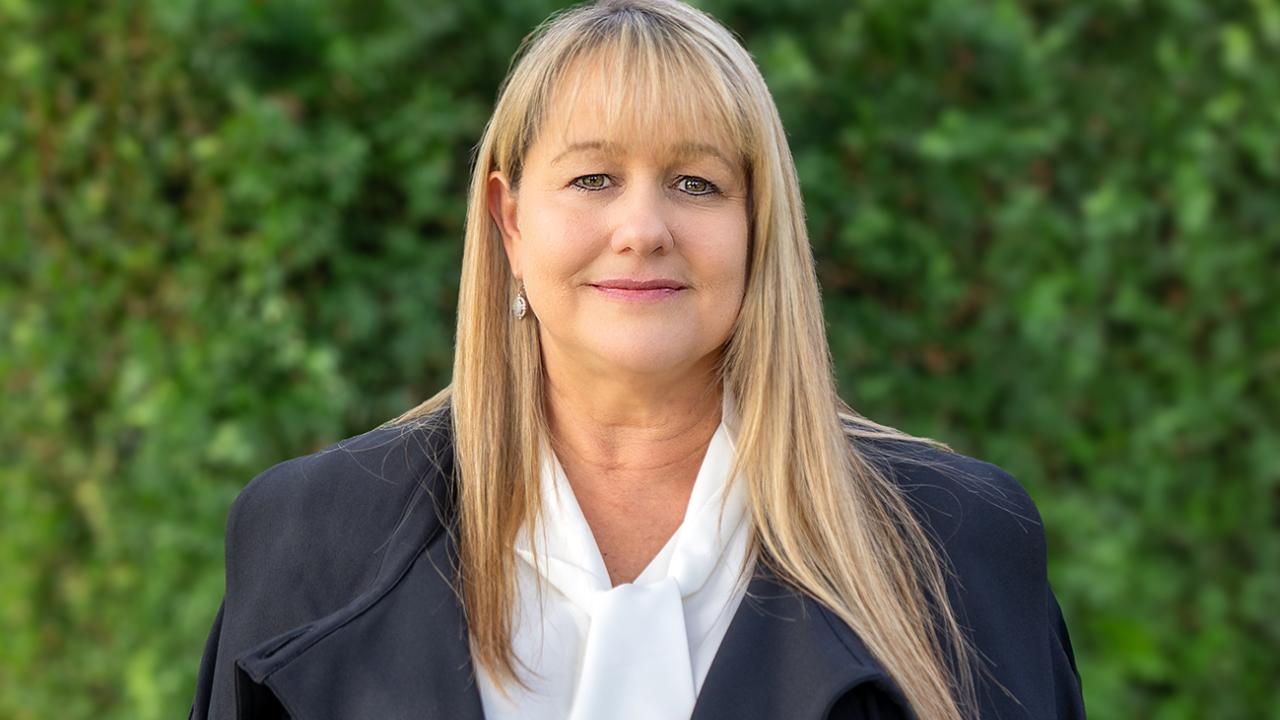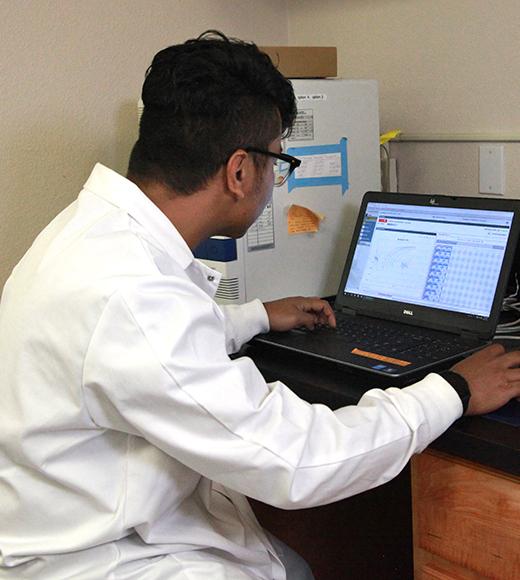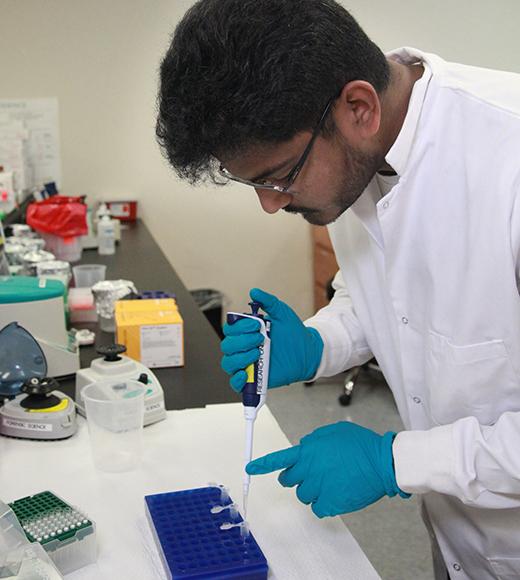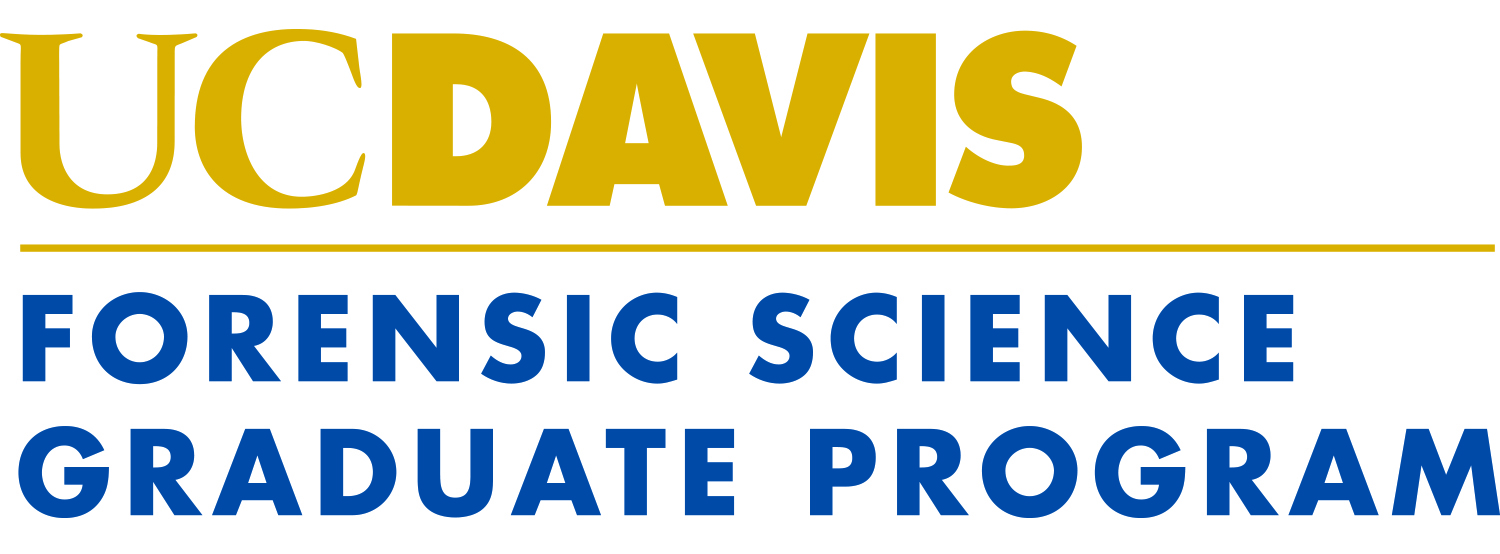
How Forensic Science Comes to Life
Ashley Hall Discusses DNA Research and Student Opportunities
“While a master’s degree is not required for many positions in crime labs, it is becoming more and more of an expectation,” said Ashley Hall, Ph.D., director of the UC Davis Forensic Science Graduate Program. With 25 years of industry experience, she hears first-hand from employers that thesis-based master’s degrees demonstrate an understanding of the basics of forensic science and significant time spent on the bench in a lab.
“For each job opening, labs might see around 100 applications. A thesis-based M.S. in forensic science, like the one offered at UC Davis, helps applicants stand out,” said Hall.
As a DNA forensic researcher, Hall focuses on developing, optimizing and validating new techniques and generating foundational knowledge that directly benefits crime labs. “Our job in the research lab offers support to analysts in crime labs and ensures the methods we deliver are high quality and high value,” she said.
At UC Davis where Hall is both the program director and a faculty member in the Forensic Science Master’s Degree, her lab is populated with graduate students working on their thesis research. “Students spend a significant amount of time on the bench learning current techniques, developing novel ones and driving the research on their projects,” said Hall. This opportunity offers students a chance to collaborate with crime labs across North America, including the New York State Crime Lab System, the Centre for Forensic Science in Canada, the California Department of Justice and the Sacramento County DA’s crime lab, and it also gives students the hands-on research experience and skills employers are looking for.
You earned your bachelor’s degree in molecular and microbiology. What inspired you to pursue a career in forensic science?

I love science but I wasn’t sure what I wanted to do with my undergrad degree, so I took a year off and tended bar. During that year, I heard reference to forensic science, and it just clicked. I realized that was what I wanted to do.
I got my master’s in forensic science at the University of Central Florida in Orlando, intending to go into a crime lab. But I loved the research in forensic DNA and decided that I wanted it to be a part of my career. I went on to get my doctorate in biomolecular science and did my dissertation research at the National Center for Forensic Science. I researched DNA damage and repair in forensic samples and thoroughly enjoyed the time I spent in the lab. After I earned my Ph.D., I went into the defense industry for about five years.
Ultimately, though, teaching and research at a university was where my heart was, so I left industry and joined the forensic science program at the University of Nebraska-Lincoln and later moved to the University of Illinois at Chicago before taking the position as program director here at UC Davis.
I have been teaching forensic science for almost 15 years and have received several awards during my tenure, including Teacher of the Year and the Holling Family Award for Teaching Excellence. I also shared the American Society of Crime Laboratory Directors Laboratories and Educators Alliance Program (ASCLD LEAP) Collaboration Award.
How has your research contributed to the field?
I was involved in the research that resulted in the development of Y-chromosome specific DNA profiling systems, in the analysis of DNA damage specific to forensic samples. Currently my lab focuses on trace DNA samples, like fingerprints, and how they inform activity-level propositions, such as questions of how the sample got there rather than simply whose it is. This is a hot-button topic in forensic science right now, and we are lucky to be part of the conversation.
In the research lab, we also see some cases, particularly when we are developing novel techniques that haven’t yet been adopted in the crime lab. So, we tend to see unusual cases that need creative solutions.

How do you support students in their research and thesis work?
I am fortunate to have an active research lab where I can work with students on a variety of projects. We work together to design the project and write a project plan. I train them to become proficient in standard DNA profiling methods before they move on to their unique projects. I also provide guidance through weekly research meetings, but ultimately, it’s the students who are driving their projects. They design and perform experiments and interpret their data.
What type of personalized support do you offer students in your classes?
I teach Forensic DNA Analysis, Forensic DNA Lab and Forensic Science Fundamentals. My classes typically have 20 students or less, which gives my students plenty of opportunities to interact with me and participate in hands-on activities. My office is at the Forensic Science Center, where all the forensic science classes are taught, so it’s convenient for students to reach out for support. I have an open-door policy, and students can come talk with me by appointment or whenever they are in the building for a class. I also have weekly individual meetings with each student in my research lab.
Tell me about your approach to teaching and the type of learning students can expect in your classes.
My classes are a mix of traditional lectures (presenting background material) and hands-on activities. I like to assign take-home assessments that require students to research and analyze rather than just memorize.
For example, in Forensic Science Fundamentals, I give students a series of AI prompts and ask them to enter the prompt of their choice into a chatbot like ChatGPT. What they find is a generalized overview that may contain errors that they, as budding experts, recognize. Then they make corrections and add proper information to produce a scientific treatment of the prompt. This demonstrates both the limitations of current AI technology and how students may find it useful.
Pursue Your M.S. in Forensic Science
Sign up for a free online information session to learn more about the program and get answers to your questions.
In Forensic DNA Lab students learn body fluid identification and DNA profiling techniques currently used in crime labs and complete the course with a mock case to solve.
What industry connections do you have, and how can students benefit from them?
Through my work in the field, research publications and attendance at national conferences, I have established a large network of forensic scientists, which students can benefit from, but they are encouraged to start their own forensic network. We urge students to attend forensic conferences and present their data. Many students in the program find their first job in forensic science at California crime labs.
